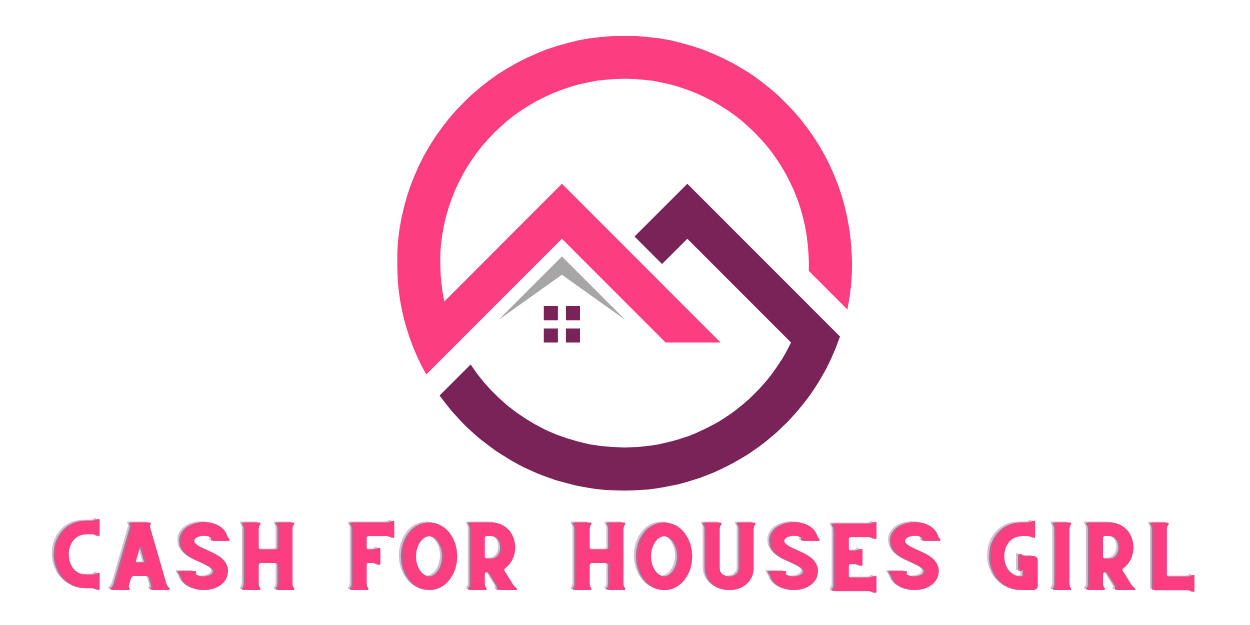
Both buyers and sellers need to know about the closing costs that come with buying a home, especially in Richmond, VA. This complete guide covers all the important points of closing costs, giving you the knowledge to handle financial obligations with confidence. This page has an easy-to-use Richmond, VA, closing costs calculator and a full list of all the possible costs. This will help you make a good budget and avoid any shocks at the closing table. This guide will help you make smart choices and make sure your real estate transaction goes smoothly, whether you’re a first-time buyer or just want to improve your financial plan.
Key Highlights
- In Richmond, VA, knowing the closing costs is important for making a good budget for buying a home.
- A closing costs calculator gives clear figures, which can help you avoid fees you didn’t expect.
- Due to higher fees and interest rates, closing costs are usually higher for bigger loans.
- Accurate cost tools help you plan a full budget and predict how much things will cost.
- To be financially ready in Richmond, you need to know how much the loans cost and how much the close costs.
Understanding Richmond, VA, Closing Costs

It’s important to know about closing prices when buying a home in Richmond, VA. These costs are important financial factors that can affect your choice to buy a home.You can better prepare financially for your home investment if you know what real estate closing costs are and what factors affect them in Richmond. Additionally, using tools such as a closing costs calculator can make these prices more understandable, and you can learn more about how Cash for Houses Girl buys homes to streamline the process.Additionally, using tools such as a closing costs calculator can make these prices more understandable. Look into the specifics of what closing costs are and how they are affected by factors unique to the Richmond market.
What Are Real Estate Closing Costs?
Closing costs are the different fees that buyers and owners of homes have to pay when they buy or sell a home. These costs are not included in the price of the home itself.They usually include things like loan origination fees, appraisal fees, property taxes, renters’ insurance, title insurance, recording fees, and more. In Richmond, closing costs can be very specific because they take into account both the local real estate market and the needs of the state. For the buyer, these fees usually run from 2% to 5% of the purchase price. They depend on a number of factors, such as the loan amount and any seller concessions that were negotiated. To understand these costs in more detail, you need to know that they are mostly made up of loan fees, like mortgage interest that was paid early, and different government fees.The prices of property taxes and homeowners’ insurance are also important factors that can have a big effect on the total amount of money needed at closing. Using a good closing costs tool can help you break these costs down in a more detailed way. It’s a useful tool that lets buyers guess what specific costs will be and make plans accordingly.
Also, rental costs aren’t just required fees; they often include extra costs that you don’t have to pay for, like home checks and extra insurance, which can give you peace of mind but also raise the initial costs. Buyers can get a better idea of how these costs fit into their overall budget by using a mortgage calculator and talking to financial advisers.Overall, learning about all of the different types of closing costs is an important part of getting ready to buy a house in Richmond, VA. Closing costs can include prepaid fees like property taxes and insurance.
Factors Influencing Closing Costs in Richmond
Richmond’s closing costs are affected by many things, some of which are unique to the area and some of which are related to the economy as a whole. If you’re looking at other nearby markets, such as Arlington, you can see how a company that buys homes in Arlington, VA handles closing costs and home sales. Costs are often worked out as a part of the home’s total price, so this is one of the most important factors. As a result, general closing costs tend to be higher when the purchase price is higher. Richmond’s is also affected by local property taxes in a big way. The divided closing costs may be affected by Richmond’s property tax rates, which change based on when the property was owned during the fiscal year. There are also big differences in government fees, like filing fees and transfer taxes that depend on where you live. These fees can affect the final closing cost. The loan amount is also very important because it affects the mortgage fees and the amount of interest that is paid early. Larger loans usually have higher closing costs because the loan processing fees are higher and the interest rates may be higher as well. On the other hand, things like cheap mortgage rates can help lower some of these costs, which shows how important it is to compare rates carefully. Another thing buyers should think about is how financially ready they are, since different amounts of resources can make it harder or easier to pay for closing costs.Having enough money saved up helps cover any unexpected costs that may come up during the closing process. For more exact estimates of these costs and to make a more complete budget, using a closing costs calculator is a good idea. More effective money management can come from careful planning and knowing all the details of loan terms and prices. So, buyers can make smart decisions and get their budgets ready for buying a new home if they know the things that can affect closing costs in Richmond.
The Role of a Closing Costs Calculator

People who want to buy a house in Richmond, VA should know what a closing costs tool does.This tool is very useful for getting exact numbers on the different costs you might have when you buy a house. To get a full picture of closing costs, it doesn’t just guess. It looks at things like loan amount, interest rates, and property taxes. If you know how to use a closing costs calculator properly, it can help you plan your money well and with confidence. You can be sure that this feature will help you make smart decisions when you buy a house.
How a Closing Costs Calculator Can Save You Money
A closing costs calculator is more than just a way to guess how much things will cost.It’s also a smart way to save money while you’re buying a house. If you know ahead of time what each fee and payment covers, you can arrange better terms and spot any possible overcharges. You can easily understand the calculator’s numbers that break down things like loan processing fees, lender charges, and prepaid interest. This lets you compare these costs with other lenders. Different lenders often have different rates, and learning about these differences can save you a lot of money. The calculator can help you figure out which choice will save you the most money in the long run, like if one lender offers a lower interest rate but higher fees and another does the opposite. You can also see how small changes in interest rates and loan amounts affect your overall financial commitment by entering different lender offers into the calculator. Instead of just looking at the loan’s face value, this tool lets you compare and choose loans based on a wide range of factors, with a focus on lower monthly payments and total cost savings. In the end, using a calculator to see how your possible loan, payment schedules, and closing costs affect each other helps you make better financial choices.A closing costs calculator is a great tool for planning your financial future during the home buying process because it breaks down complicated financial information into easy-to-understand steps.
Utilizing a Costs Calculator for Accurate Estimates
When buying a home, it’s important to make accurate financial predictions, and a cost calculator is a great tool for doing this. A closing costs tool, unlike simple estimates, takes into account all the specifics of your mortgage, such as the loan amount and rate, lender fees, and property taxes. When you enter specific loan parameters, you get personalized information about what your closing costs might include.This way, you can avoid being surprised by costs you didn’t plan. Many of these apps work with other tools, like a mortgage calculator, to show payments every two weeks and the total cost of the loan over its lifetime. This all-around view makes it easier to picture how much it will cost to own a home. These tools also make things clearer by showing you what parts of your costs might change depending on lender rules or state laws. It can tell you how much interest you’ve already paid, which is an upfront fee that most borrowers don’t think about but has a big effect on your starting cost. In Richmond, for example, small details like local property taxes can cause closing costs to be different, so using a calculator like this makes sure that figures are very close to what the real costs will be. Putting your financial information into a tool for closing costs can also help you plan for the future. Once detailed estimates are made, many calculators let you change important factors, like the loan amount or make hypothetical changes to interest rates. This gives you a live picture of what might happen in the future. When you add a cost calculator to your list of financial tools, you move from guessing to precise planning.This step gives you the tools you need to make a good budget, use your resources wisely, and move forward with confidence in your search for a new home in Richmond.
Key Considerations for Loan Amounts in Richmond
Anyone buying a home in Richmond, VA needs to know how the amount of their loan affects their closing costs. The amount of the loan affects not only the total cost of closing, but also the lender fees and interest rates. When making financial plans or buying a home, it’s important to be aware of these factors. For a fun look at the city beyond numbers, check out our 10 Fun Facts About Richmond, VA. How the size of your loan affects your closing costs and what you can do to make the most of these costs are covered in this part.
Impact of Loan Amount on Closing Costs
The loan amount is one of the most important things that affects closing costs and can have a big effect on how much it costs to buy a home in Richmond overall. Fees for closing are usually calculated by lenders as a portion of the loan amount. This means that closing costs are usually higher for bigger loans.There are several parts to this estimate, such as loan origination fees, which are fees that lenders charge to process your mortgage. These fees go up as the loan amount does, so people who want to buy a house need to keep this in mind when they are making their budget. Interest rates are another important way that loan amounts affect closing costs. Higher interest rates may be offered on bigger loans, which add to the interest costs that are paid up front at close. The amount paid at closing to cover the loan’s interest from the date of settlement to the first payment is called “prepaid interest.” It is based on the loan’s interest rate and amount.So, a bigger loan amount can mean more interest that has already been paid, which can change how much interest is due at close.
It’s also important to keep in mind that the loan amount can affect other required costs, like title insurance and government fees, which are also based on the loan amount. Lenders may use risk assessment criteria that are tied to the loan amount.This can change the amount of insurance that is needed and make the total amount of money that is due at close even higher. With an exact prediction from a closing costs calculator, homebuyers can better plan their finances to cover these costs, and they may even be able to get better terms from their lenders. People who want to buy a home in Richmond need to do a lot of research first. They should compare different lenders and know how different loan amounts will affect their closing costs. Loan terms and closing costs can vary from lender to lender, so shopping around can save you money on both.You can find the best mix between lowering your closing costs and being sure you can afford a good home by planning the loan amount and making sure it fits with your financial goals and resources.
Practical Tips for Home Buyers in Richmond

It takes careful planning to get around in Richmond’s real estate market, especially when it comes to keeping closing costs low. Homebuyers need to know how important it is to be financially prepared and make good use of their resources. These useful tips will help you make smart choices on your way to becoming a homeowner in Richmond, from making a budget that includes all the possible extras to looking into your mortgage options. If you’re dealing with tenants or just want to sell your Richmond house faster, check out our detailed guide for navigating tenant-occupied property sales.
Preparing Your Budget for a New Home
When buying a home, especially in a competitive market like Richmond, it’s important to make a detailed budget. Finding out how much homes cost in the neighborhood you want is the first step. This information often sets the stage for your financial plans. Aside from the purchase price, other important financial factors that will affect your budget, like government fees and property taxes, should also be taken into account. Since you can’t avoid these costs, planning for them ahead of time will help you keep track of your spending and avoid unexpected financial stress.
When making a budget, one of the most important things to do is to carefully look at your current credit score and available funds. To get a mortgage, you need to have good credit, which affects the interest rates and your chances of being approved. You might be able to lower your mortgage payment by looking at your credit records and making any changes that are needed. This will affect how affordable the new home is overall. Working with financial advisors can also give you a strategic view that can help you align your credit, income, and debt so that you can afford to buy a house.
Prepaid interest, which is part of your mortgage payment, is another big cost. The interest that was paid ahead of time covers the days between the closing date and the due date of your first mortgage payment. To make good financial plans, you need to know about this up-front cost and include it in your budget. Also, setting aside money for possible property tax hikes over the years will protect against budget shocks and keep the economy stable.
A closing costs calculator is a very useful tool for people in Richmond who are buying a home because it breaks down all the possible fees and gives you a better idea of all the money you’ll have to pay when you buy a home. This tool helps you guess different parts, like loan fees and interest that you’ve already paid, so you can see what other costs might be. By modeling different situations, like changing loan amounts and interest rates, you can see how they affect your monthly and upfront costs. This will help you plan your finances better.In the end, these budgets give homebuyers the confidence to safely navigate Richmond’s housing market. This sets you up for a successful and safe financial future.
If you want to buy a house in Richmond, VA, you need to know about the closing costs. You can use a closing costs tool to get an idea of these costs and make smart financial decisions. You can speed up the home-buying process, lower your stress, and avoid shocks by thinking about all the fees that might be involved.Whether you’re a first-time buyer or a seasoned homeowner, knowing about closing costs makes the whole process clear and gives you trust. For personalized guidance on your Richmond home purchase, don’t hesitate to reach out to Cash for Houses Girl Make sure you talk to real estate agents and lenders to find out about the costs that are unique to your deal. This will help you buy a house successfully.
Helpful Richmond Blog Articles
- Richmond, VA, Vacant Property Regulations And Maintenance
- Sale Of Inherited House With Multiple Owners In Richmond, VA
- Capital Gains Tax Calculator Richmond, VA
- Closing Costs Calculator Richmond, VA
- 10 Fun Facts About Richmond, VA
- Free Things to Do in Richmond, VA
- Best Things to Do in Richmond, VA, with Kids
- Is Richmond, VA, Safe?
- Richmond, VA Property Managers
- Is Richmond, VA a Good Place to Live?

